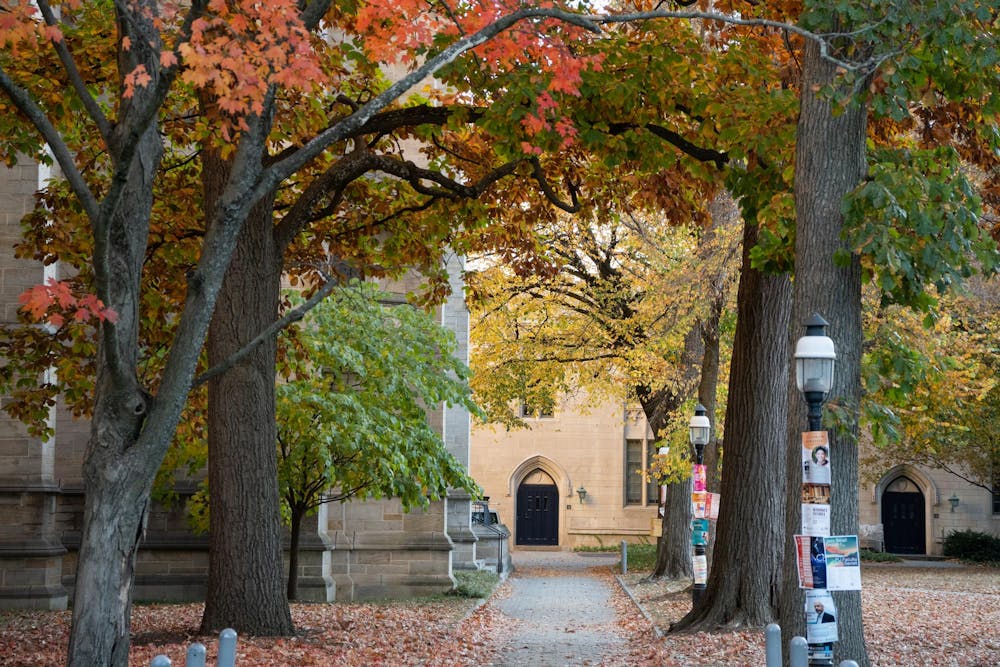Telling somebody your major can prompt a variety of responses, ranging from impressed gasps to vacant stares. As college students, most of us can probably agree that different fields of study have varying reputations about the careers, success, and income that they potentially bring for their concentrators. If I had a nickel for every time I’ve been asked “what I’m going to do” with a degree in the Humanities, I could take the whole Princeton student body to lunch to discuss my answer.
It’s important to carry our learning beyond Princeton and translate it into action and the generation of more knowledge, income, and personal fulfillment. However, if the entire focus of a college education becomes centered on how it’s going to benefit us professionally when it's over, we are stripping the value away from learning itself. When designing our educational paths, we should prioritize genuine intellectual interest over exclusively pre-professional considerations.
Ambition for the future can add to the meaning we derive from learning, motivating us by connecting class material to an exciting career or future opportunity. But an excessively “careerist” approach to education has consequences. While the learning we do in the present should ideally prepare us for our futures, focusing on the future at the expense of what captivates and inspires us in the present limits our intellectual horizons. We might miss out on a class we would have loved because it didn't seem to fit our predetermined career goals. We should model our educational paths based on our genuine intellectual interests, rather than making our academic decisions solely based on whatever we think we want to do with our lives at 18.
Constant worry about what we are going to do post-grad creates an educational hierarchy based on the perceived productivity or practicality of a field of study. This can create assumptions about students’ intelligence and ambition based on their chosen major. Whether or not a subject is perceived to translate to a prestigious career is becoming a more important factor in major selection than whether students are interested in the material they are learning about.
But when we choose our majors based on a rigid career or income goal, any setbacks present a threat to the entire future we've built in our heads. Struggling academically doesn’t just represent misunderstandings or a need to seek help. It gets blown up to the scale of a complete career failure. These stakes, for some, make every class much more than a class and every grade more than a grade. It's getting difficult to stop judging both ourselves and our peers by the metric of predicted career success.
These fears have manifested into what students choose to learn: pursuit of the Humanities has declined over the years as societal standards shift for what constitutes a “practical” career. The flurry of AI development has caused many to discount the value of critical thought and original written expression, and prompted fear that the careers building from these skills will be replaced by artificial intelligence. In 1999, Princeton’s three most popular majors were History (11.8 percent), Economics (11.6 percent), and Politics (9.3 percent). In the Class of 2024, the three most common majors were Computer Science B.S.E. (12 percent), SPIA (11 percent), and again Economics (8.9 percent). Over 25 years, History dropped from 11.8 to 3.8 percent, and English from 7.5 to 2.5 percent.
Students are increasingly choosing the area of study that they believe will make them the most successful after Princeton, but it may not necessarily be what interests them the most. A survey from the class of 1999 showed that only 51.6 percent of alumni would choose the same major if they were to redo their time at Princeton. This percentage is relatively consistent across fields of study. Approximately half of Social Sciences, Humanities, and Natural Science graduates would change their major if they got the change, while the number in Engineers is slightly lower, closer to 40 percent. Humanities majors are not generating dramatically higher levels of regret in graduates.

When nearly half of Princeton graduates across all fields of study would change their past major if they got the chance — and when the fields judged most harshly do not correlate with any higher level of regret — why should careerism stop Princetonians from majoring in the humanities, or whichever field they love, as opposed to the field they think they should be in?
Subjects have purpose and meaning beyond the job they are assumed to funnel into, and education has value independent of career. The percentage of graduates from the class of 1999 who are currently employed in the field of study they anticipated for themselves when they graduated is only 50.3 percent. Over 80 percent of 1999 graduates have made at least one career change. The fact of the matter is that we can’t anticipate the course of our entire lives while we’re studying at Princeton, and we don’t even seem to know once we graduate. We shouldn’t hold ourselves, and each other, back from studying what we love based on assumptions about a future of which none of us can yet be certain.
Lily Halbert-Alexander is a first-year prospective English major from San Francisco. She can be reached by email at lh1157[at]princeton.edu.









